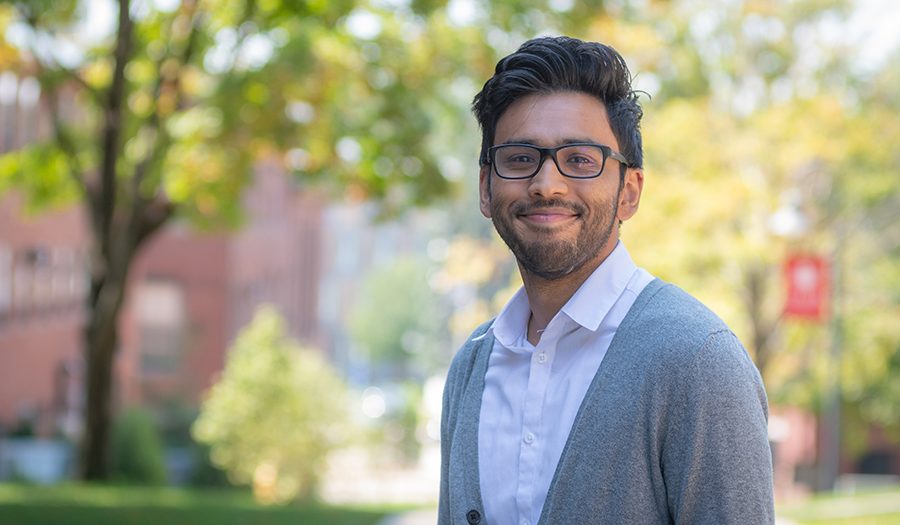
Arden Ali
Arden Ali’s research interests lie in ethics, philosophy of action, philosophy of mind, and philosophy of law. He will begin teaching at Clark in spring 2020.
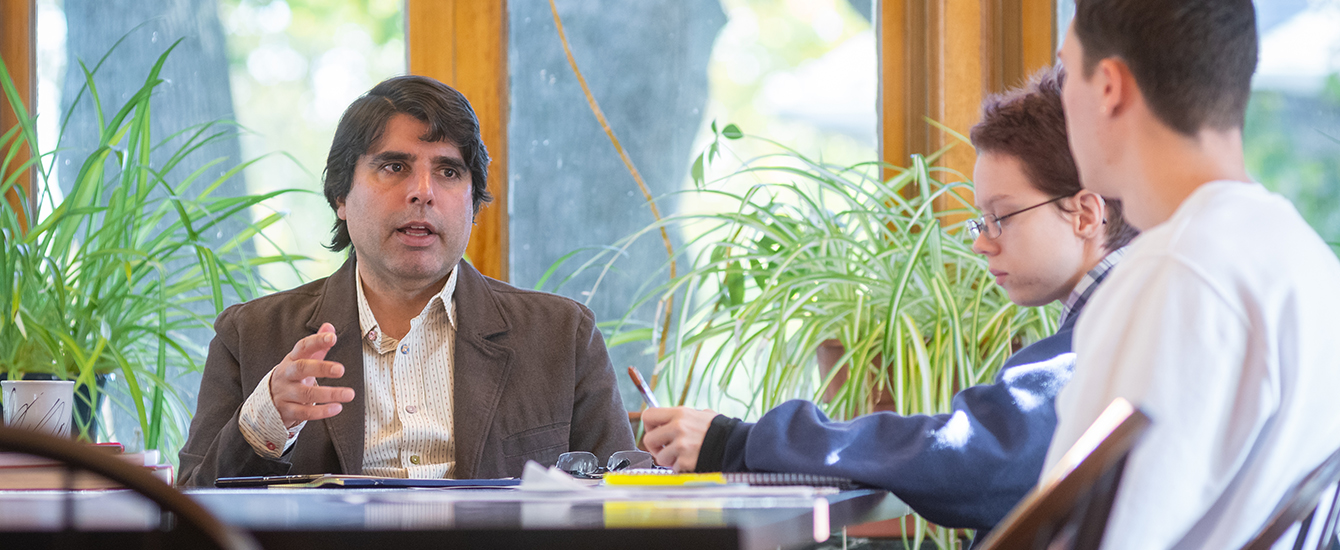
Clark’s philosophy faculty research a range of topics, including social and political philosophy, the philosophy of culture, the philosophy of science, environmental ethics, biomedical ethics, metaphysics, the philosophy of religion, and more.

Arden Ali’s research interests lie in ethics, philosophy of action, philosophy of mind, and philosophy of law. He will begin teaching at Clark in spring 2020.

Arden Ali’s research interests lie in ethics, philosophy of action, philosophy of mind, and philosophy of law. He will begin teaching at Clark in spring 2020.
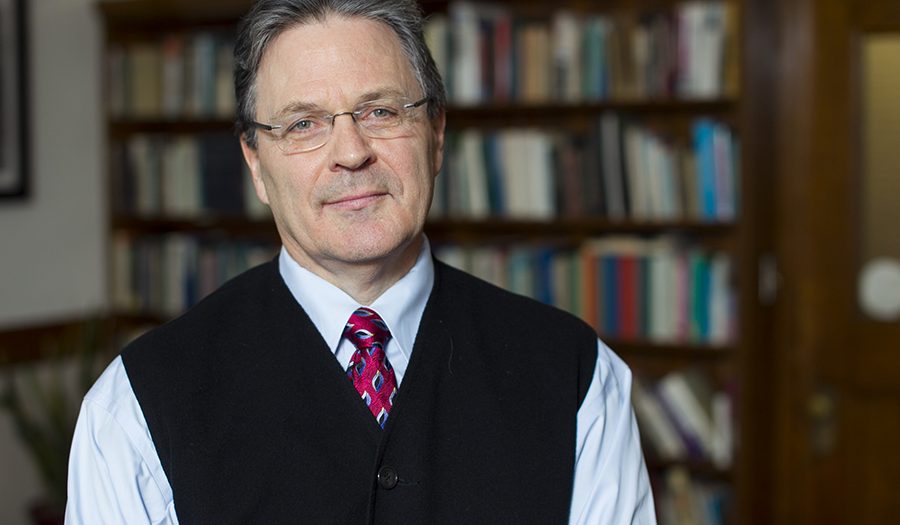
Davis Baird is provost and vice president for academic affairs at Clark. His research interests are in the philosophy of science and technology, with a core focus on the function of scientific images, particularly images of nanoscale objects. He also is pursuing research on the commercialization of scientific knowledge. Prior to his work on nanotechnology, his research focused on the history and philosophy of scientific instruments. He is interested in the epistemology of scientific instruments; that is, how the things that we make express our knowledge.

Davis Baird is provost and vice president for academic affairs at Clark. His research interests are in the philosophy of science and technology, with a core focus on the function of scientific images, particularly images of nanoscale objects. He also is pursuing research on the commercialization of scientific knowledge. Prior to his work on nanotechnology, his research focused on the history and philosophy of scientific instruments. He is interested in the epistemology of scientific instruments; that is, how the things that we make express our knowledge.
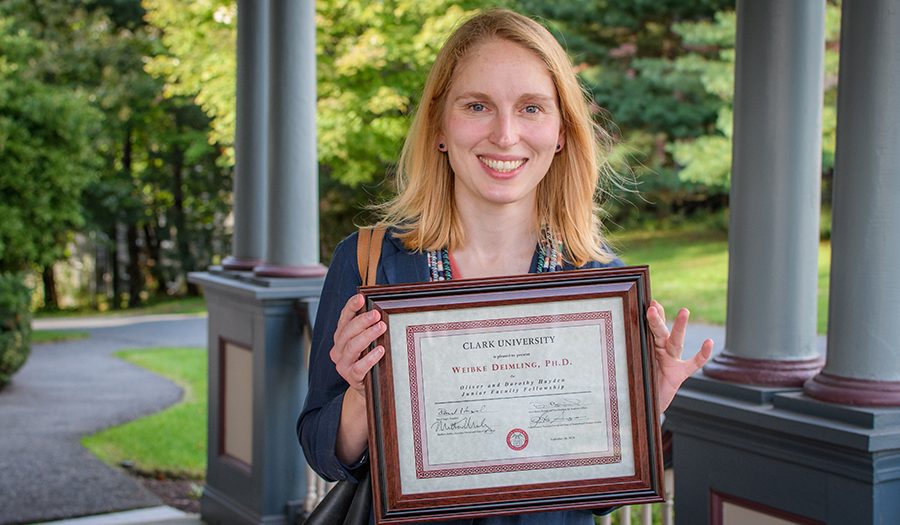
Professor Deimling’s main research and teaching concern 17th-, 18th-, and 19th-century philosophy, questions in the philosophy of art, ethical questions, and questions about the emotions and human nature.

Professor Deimling’s main research and teaching concern 17th-, 18th-, and 19th-century philosophy, questions in the philosophy of art, ethical questions, and questions about the emotions and human nature.

Wes DeMarco has worked for three decades to develop a ‘Neosocratic’ philosophy that engages Western and Asian wisdom traditions, and which offers a fresh approach to the philosophical life, meaning, metaphysics, nature, and human agency and interagency. Central to this approach is how the lineaments of wisdom might be intimated in the questions by which it is sought and the qualifications of language and thought needed to articulate these. The approach hangs on a general theory of symbolization and the metaphysics of nature implied by this theory. Ethics and aesthetics follow in turn.

Wes DeMarco has worked for three decades to develop a ‘Neosocratic’ philosophy that engages Western and Asian wisdom traditions, and which offers a fresh approach to the philosophical life, meaning, metaphysics, nature, and human agency and interagency. Central to this approach is how the lineaments of wisdom might be intimated in the questions by which it is sought and the qualifications of language and thought needed to articulate these. The approach hangs on a general theory of symbolization and the metaphysics of nature implied by this theory. Ethics and aesthetics follow in turn.

Professor Derr’s research interests are in the areas of medical ethics and health policy, philosophy of science, and environmental ethics and policy. His current writing focuses on ethical issues related to the conduct of biomedical research on human subjects in less developed countries, on questions of justice related to national energy policy, and on the application of emerging veterinary reproductive technologies to human beings. He has been involved in interdisciplinary studies of radioactive waste management, occupational hazards, environmental hazard management, and hazardous technology transfer.

Professor Derr’s research interests are in the areas of medical ethics and health policy, philosophy of science, and environmental ethics and policy. His current writing focuses on ethical issues related to the conduct of biomedical research on human subjects in less developed countries, on questions of justice related to national energy policy, and on the application of emerging veterinary reproductive technologies to human beings. He has been involved in interdisciplinary studies of radioactive waste management, occupational hazards, environmental hazard management, and hazardous technology transfer.

Professor Hendricks’ primary research interests concern issues within the philosophy of mind, metaphysics, and epistemology. Presently, he is focusing on the nature of so-called “phenomenal concepts” — our concepts of the qualitative aspects of our own sensory experience — and the role they play in discussions about anti-physicalist arguments.

Professor Hendricks’ primary research interests concern issues within the philosophy of mind, metaphysics, and epistemology. Presently, he is focusing on the nature of so-called “phenomenal concepts” — our concepts of the qualitative aspects of our own sensory experience — and the role they play in discussions about anti-physicalist arguments.
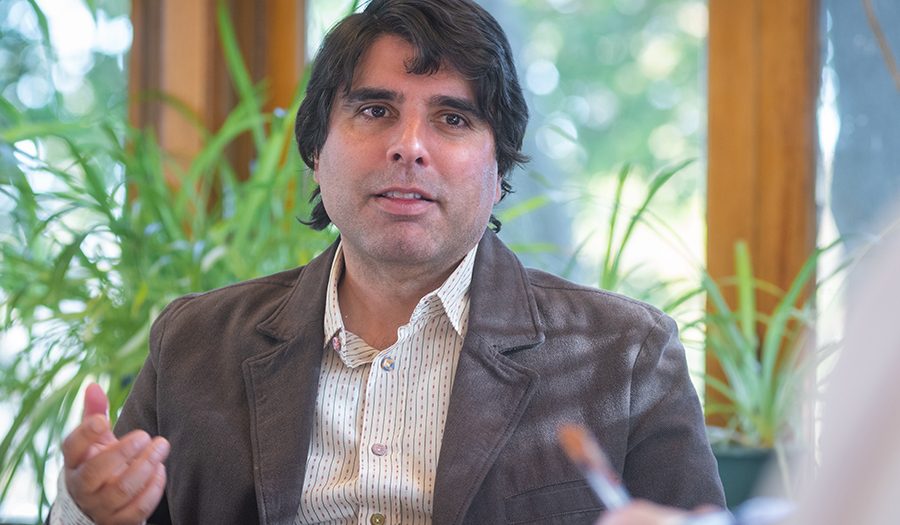
Professor Sharma’s main research interests are in the Greek philosophy of the 6th to 4th centuries BCE. In addition to teaching courses in ancient philosophy, he regularly offers courses in metaphysics, the history of early modern philosophy, and themes in late-19th- and early 20th-century thought.

Professor Sharma’s main research interests are in the Greek philosophy of the 6th to 4th centuries BCE. In addition to teaching courses in ancient philosophy, he regularly offers courses in metaphysics, the history of early modern philosophy, and themes in late-19th- and early 20th-century thought.
Beck House
11 Loudon Street
Worcester, MA 01610